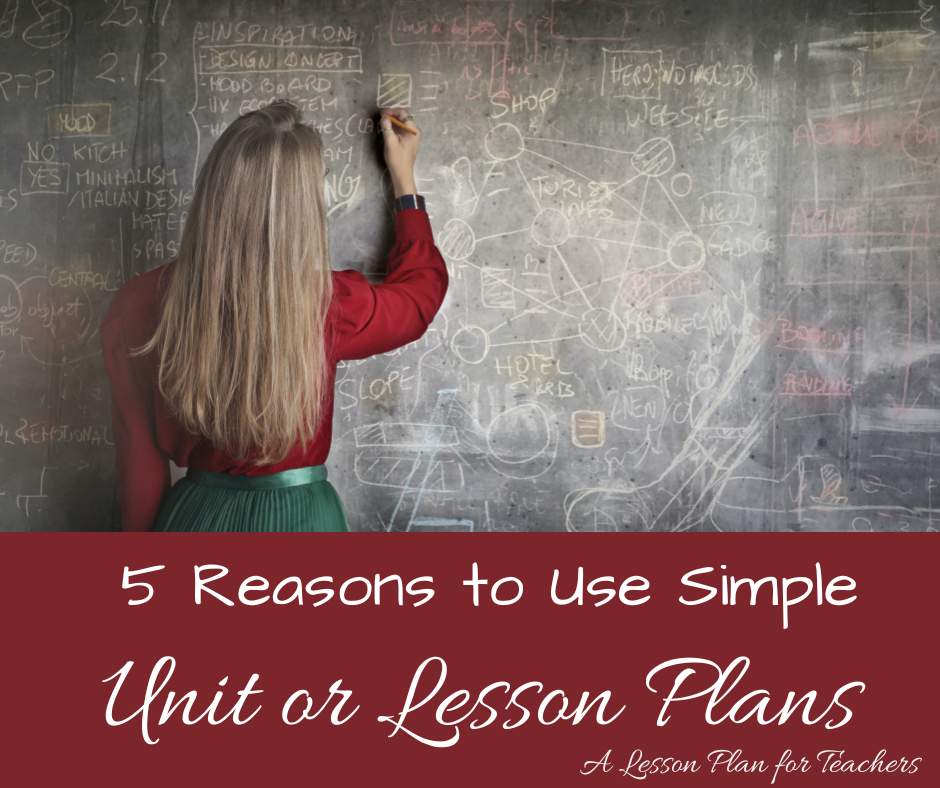Organization is everything. Along those lines, planning for your classes is the organization that can make a huge difference in success or failure for you or your students. These five reasons to use a simple unit or lesson plan will help you attack the basics with ease.

Reason 1: Students can smell fear.
If you come in unprepared, even your youngest learners will know right away. They will take advantage of the situation. This is where classroom behavioral issues start. Simply planning ahead, typically with an objective in mind, can stop behavior issues before they start.
Reason 2: There is a difference between a good teacher with a lesson plan and an okay teacher with a lesson plan.
Planning out a unit or lesson truly sets teachers apart from those who do not think in advance. Good teachers take their planning a step further by adding in creativity. Creativity makes all the difference in the classroom. It helps with student engagement, lessons misbehavior, and most importantly, increases student success.
Reason 3: The big boss says you have to lesson plan.
In most states now, teachers are required to complete, and even turn in, plans in advance. This isn’t a bad thing, but can be tedious. In reality, the legislators that demand this know nothing about the day-to-day needs of our students. They know even less about the fact that lesson plans need to change on a daily basis. Keeping that in mind as you plan units will save you much headache later.
Reason 4: Unit plans create a pathway.
One of the most effective tools in the Social Studies classroom is the timeline. It helps us know what came before and leads us to what will come after. This is also true with teaching. The unit plan is your timeline. Use it effectively. Base each unit plan on what you have done in the past that worked and what you hope to achieve in the future.
Reason 5: Summative assessments are driven by your plans.
Creating a clear, concise outline for your unit, and even your specific lessons, directly relates to assessing objectives effectively. By defining objectives in your lesson and unit plans, your assessments will basically write themselves. Using this backward approach allows you to check the boxes needed to satisfy your objectives. Keep in mind that all assessments do not look alike. Creative assessments can tell you just as much about student learning as written ones and require different planning for success.
But how do I create an effective lesson plan?
Include the following:
- Planned dates
- Number of teaching days
- Objectives
- Goals
- Standards
- Procedures
- Lesson activities
- Assessments

If you want this mapped out for you in an easy-to-use format, check out this comprehensive template.
Happy planning!
